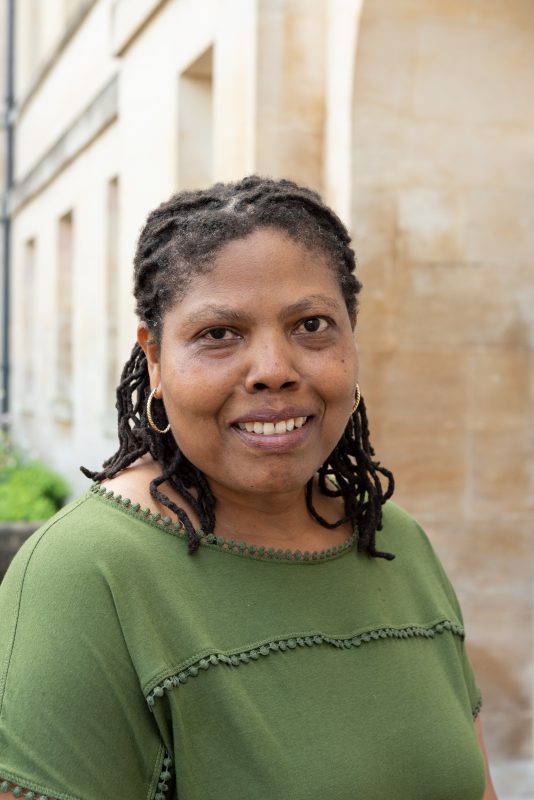Preserving indigenous languages

Audrey Mbogho is from the Wadawida community of about 400,000 people in South-Eastern Kenya, who speak the language of Kidawida.
Audrey recalls being punished in school for speaking her mother tongue – Kidawida. Teachers thought that speaking native languages in school was a ‘terrible vice’ that interfered with learning English.
Audrey’s parents were both teachers and they encouraged Audrey to be multilingual. She grew up perfecting three languages: Kidawida, English and Swahili, and developed a passion for languages.
Now, decades later, because of the size of the Wadawida community and the discouragement of younger people from speaking Kidawida, the language is at risk of extinction.
Audrey is currently the Chair of the Department of Mathematics and Computer Science at Pwani University in Kilifi Kenya. In June 2018, Audrey visited Oxford for two months as an AfOx-TORCH Visiting Fellow.
She used the Fellowship opportunity to create a web-based platform called “Ngano”, the Kidawida word for “Stories”. Ngano will use crowdsourcing technologies to allow Kidawida speakers to contribute short stories and audio recordings in their language. Ngano allows Kidawida speakers to contribute children’s stories, news articles, recipes, songs and other fictional and non-fictional writings to preserve the language and culture of the Wadawida.
Audrey created the platform in collaboration with colleagues from The Faculty of Linguistics, Philology & Phonetics at Oxford University.
Audrey has had the idea of developing the platform for many years. However, being the Chair of her department at Pwani University as well as a Lecturer means she has two full time jobs.
Back in Kenya, Audrey is now exploring funding sources to promote the project within communities and high schools. She plans to host workshops and encourage people to write short stories for the Ngano platform.
Languages are dying at a very rapid pace. There are around 7000 languages in the world today, however roughly 40% of languages are considered endangered, with less than 1,000 speakers remaining.
Audrey hopes that other language preservation efforts can use similar crowd sourcing platform to keep pace with the threat of loss. The availability of data will create opportunities for postgraduates to take up research in the area of natural language processing for low-resource languages and provide technology-based solutions in this area.
You can view the Ngano platform here: https://kidawida.phon.ox.ac.uk/index.php/Main_Page
Find out more about the AfOx Visiting Fellowship Programme here:
http://www.afox.ox.ac.uk/afox-visiting-fellowships-programme/
Audrey’s publications include:
- Mbogho, A., & Marquard, S. (2013). Improving the Transcription of Academic Lectures for Information Retrieval. Proceedings of The 12th International Conference on Machine Learning and Applications (ICMLA ’13), Miami, Florida, USA (pp. 560-567). New York: IEEE.
- Kivaisi, A., & Mbogho, A. (2012). Web-based Corpus Acquisition. Proceedings of the Third International Workshop on Spoken Language Technologies for Under-Resourced Languages (SLTU ’12). Cape Town.
- Mbogho, A., & Katz, M. (2010). The Impact of Accents on Automatic Recognition of South African English Speech: A Preliminary Investigation. Proceedings of the 2010 Annual Research Conference of the South African Institute of Computer Scientists and Information Technologists (SAICSIT ’10), Bela Bela, South Africa (pp. 187-192). New York: ACM.
